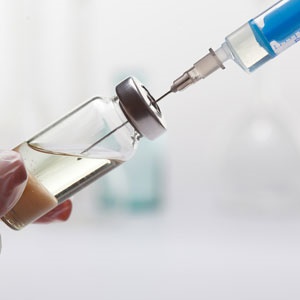
An examination of vaccination trends in Denmark shows just how damaging vaccine misinformation can be.
From 2013 to 2016, negative information about the HPV (human papillomavirus) vaccine spread widely through Danish media outlets. As a result, thousands of girls did not receive the vaccine.
Misinformation scare
For the study, researchers from the University of North Carolina at Chapel Hill looked at four different time periods to study HPV vaccination rates in Denmark: the vaccine reaching uptake levels of other vaccines (2009); beginning of negative media information on the vaccine (2013); widespread negative media coverage (2015), and a national campaign to assure the public about the vaccine's safety (2017-2019).
They found that after the misinformation scare, there was a 50% drop in vaccinations, and about 26 000 Danish girls were unvaccinated. From this, an estimated 180 avoidable cases of cervical cancer and 45 deaths are expected, researchers said.
"Denmark is a good case study to see how a country deals with vaccine misinformation," said study author Peter R. Hansen, a professor of economics at UNC. "By using anecdotal stories, media can create a false equivalence between outrageous claims and scientific facts."
So, how effective was the subsequent campaign to correct the misinformation and promote vaccination?
The 2017 initiative slightly increased vaccination uptake, but the numbers are still below the level before the misinformation wildfire. The study highlights the difficulty of undoing the damage of misinformation.
Unsubstantiated safety concerns
"Recovery has been slow and costly," Hansen said in a university news release. "Resources are being used to combat misinformation instead of being used for health care benefits."
HPV vaccinations are safe and can prevent up to 90% of cervical cancers. Girls are urged to receive the vaccine between 11 and 12 years of age, when it is most effective.
"The main threat to the resilience of vaccination programmes globally is vaccine misinformation," said researcher Noah Brewer, a UNC professor of health behaviour. "When there's a large drop in vaccination coverage, it's almost always because there's an unproven vaccine safety scare. … This has happened in several other countries, and all were due to unsubstantiated safety concerns."
The findings were published recently in the journal Vaccine.
Image credit: iStock




 Publications
Publications
 Partners
Partners















